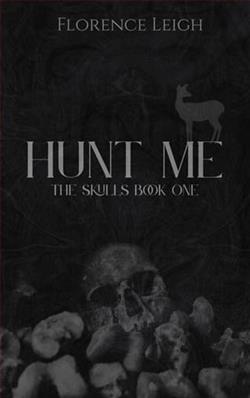Page 81 of Sweet Betrayal
They walked down a dirt road, worn from centuries of use to a half-moon beach and a little marina where an assortment of small fishing vessels and luxury yachts jostled for space.
Further along the coast was a larger, commercial port. They could see the long cement platform jutting out into the bay like an oversized runway dotted with bright yellow loading cranes and containers.
Tom counted five container ships moored in the quays waiting to be loaded, or unloaded, with several more out in the bay. That was a busy working harbor.
“We made it.” Hannah shook the dust out of her clothing. He could see by her pinched expression that she was exhausted. Even he felt weary, the effects of the day beginning to tell. They needed food, water and rest.
But first they had to find passage off the island.
“Let’s head to the marina and see if we can find a boat.”
She nodded, trailing behind him. Tom studied the fishing dock. Most boats would be heading back to shore after a hard day’s fishing out on the reef. He needed something different, something faster.
If they didn’t get the intel back to his CO in the next seven hours, the NATO strike would go ahead. A boat to the mainland would take three hours at the most, even in rough seas. That left just enough time to call HQ and deliver the information that would end the war.
He led Hannah to a shady bench under a palm tree, overlooking the marina. She sank down gratefully. “What kind of boat are you looking for?”
“I’ll know it when I see it.”
He scanned the coastal area for signs of police or the army. It seemed clear. Their ploy at the plantation must have worked. The only activity was the normal comings and goings of commercial vessels, fishing dhows, and private yachts.
Nothing looked out of the ordinary.
At the end of one of the marina’s rickety wooden piers, a small merchant vessel was moored. She obviously wasn’t big enough to warrant a mooring at the quays, or perhaps she didn’t want to pay the berthing cost.
“Over there. Keep your eyes peeled.”
She followed him down the pier.
Tom called to one of the weathered men on the boat.
He looked up. “Eh?”
“Ask him if he takes passengers,” he murmured to Hannah.
She did so.
The man waved a hand in the air. “No people.” He motioned to his cargo. “Bahrain.”
That’ll do.
“Tell him we’ll pay him. US Dollars.”
She relayed the information. It was obvious by the man’s response that he was keen. US Dollars, the universal currency.
“Tell him we’ll give him a hundred dollars for a ride to the mainland.” A hundred pounds was a lot of money in the current economic crisis–in the midst of a civil war.
Hannah turned to Tom. “He says to meet us back here at six p.m.”
“Great.” He nodded to show the man he understood.
With transport arranged, Tom took Hannah to a small diner a few roads back from the marina. It wouldn’t win any culinary awards, but it sold food and got them off the street for an hour.
They sat at the back, away from the windows. The only other customers were two elderly men playing backgammon.
A teenager with pock-marked skin took their order. Chicken kebabs and pita bread. They were both starving.
“I can’t remember when I last ate,” she said, leaning back in her chair.















